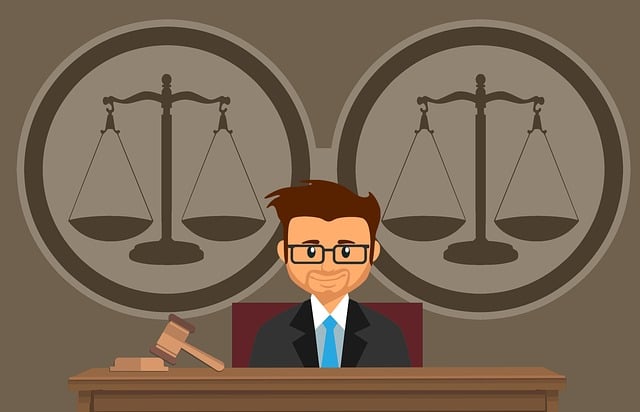In the face of complex Healthcare Regulatory Litigation Strategies involving public corruption charges, seasoned white-collar defense attorneys are crucial. These cases, governed by jurisdiction-specific laws targeting bribery, embezzlement, and fraud, require meticulous investigation, expert testimony, and compelling legal arguments to secure jury verdicts while protecting defendant rights. With strategic planning, gathering comprehensive evidence, and leveraging expert witnesses, prosecutors can navigate complexities and achieve significant results, offering mitigant avenues through demonstrated reform and cooperation for positive change within various communities.
Public corruption charges pose significant challenges in healthcare regulatory litigation. This article delves into the intricate landscape of public corruption, exploring definitions, legal frameworks, and unique considerations within healthcare. We dissect strategies for building robust cases, leveraging evidence, expert witnesses, and legal arguments. Additionally, we navigate the far-reaching consequences, including reputational, financial, and criminal implications, offering valuable insights for effective mitigation in healthcare regulatory disputes.
- Understanding Public Corruption Charges: Definitions and Legal Frameworks
- Strategies in Healthcare Regulatory Litigation: Unique Considerations
- Building a Solid Case: Evidence, Expert Witnesses, and Legal Arguments
- Navigating Consequences & Mitigation: Reputational, Financial, and Criminal Implications
Understanding Public Corruption Charges: Definitions and Legal Frameworks
Public Corruption Charges refer to allegations of illicit behavior by individuals or entities within government or public institutions. This can encompass a wide range of activities, from bribery and embezzlement to abuse of power and fraud, all aimed at personal gain or favoritism. Understanding these charges requires delving into the legal frameworks that define them. Each jurisdiction has its own set of laws and regulations, but common elements often include intent to corrupt, abuse of position, and financial gain or loss to public funds.
In terms of Healthcare Regulatory Litigation Strategies, white collar defense plays a crucial role in navigating these complex cases. Jurors in jury trials are tasked with determining guilt based on evidence presented, which can be intricate and technical. Winning challenging defense verdicts requires robust legal strategies that not only challenge the prosecution’s narrative but also ensure that constitutional rights are upheld. Effective defenses often involve meticulous investigation, expert testimony, and persuasive legal arguments to counter allegations of corruption in healthcare regulatory matters.
Strategies in Healthcare Regulatory Litigation: Unique Considerations
In Healthcare Regulatory Litigation Strategies, several unique considerations come into play due to the sensitive and high-stakes nature of healthcare cases. One key strategy is to thoroughly understand the regulatory landscape, as this field is heavily governed by complex laws and guidelines. Legal teams must navigate these rules to ensure compliance and identify potential areas for defense or prosecution. For instance, focusing on evidence that demonstrates adherence to industry standards and best practices can be a powerful defense mechanism in healthcare cases.
Moreover, given the significant impact of these lawsuits across the country, building a robust case requires an unprecedented track record of legal expertise. Jury trials often hinge on presenting clear, compelling evidence and effectively communicating intricate regulatory details to lay jurors. Therefore, experienced legal counsel with a successful history in handling similar cases can make all the difference, ensuring fair outcomes for all parties involved.
Building a Solid Case: Evidence, Expert Witnesses, and Legal Arguments
Building a strong case against public corruption is an intricate process that requires meticulous planning and strategic execution. In Healthcare Regulatory Litigation Strategies, where the stakes are high and reputations are on the line, establishing a solid foundation for prosecution is paramount. Evidence plays a pivotal role; it must be thorough, well-documented, and compelling to prove beyond reasonable doubt. This includes financial records, emails, witness testimonies, and any other relevant documents that can uncover the truth behind alleged misconduct.
Expert witnesses are another critical component, providing specialized knowledge to interpret complex data and explain legal arguments to the jury. These experts can range from financial analysts to forensic accountants, offering insights into white-collar and economic crimes. By employing healthcare regulatory litigation strategies, prosecutors can navigate the intricate web of public corruption, achieving extraordinary results in cases that often involve general criminal defense mechanisms.
Navigating Consequences & Mitigation: Reputational, Financial, and Criminal Implications
When individuals or entities face public corruption charges, they must navigate a complex web of consequences and potential mitigants. Reputational damage is often the first and most visible impact, affecting not just the accused but also their associates within healthcare regulatory landscapes and beyond. This can significantly hinder future opportunities in both the private and public sectors, including any philanthropic or political aspirations.
Financial repercussions are another critical aspect, with substantial fines and restitution possible outcomes. Additionally, convictions carry severe criminal penalties, reflecting the state’s zero-tolerance approach to corruption. However, a robust healthcare regulatory litigation strategy can offer some mitigant avenues. An unprecedented track record of successful defense cases in similar scenarios can bolster arguments for leniency and demonstrate a commitment to reform, particularly when combined with efforts to rectify any identified wrongdoings and cooperation with authorities. This holistic approach aims to balance accountability with the potential for positive change within the philanthropic and political communities.
Public corruption charges pose significant challenges in healthcare regulatory litigation. Understanding the nuances of these charges, as outlined in this article, is crucial for building a robust case. By employing effective strategies tailored to healthcare regulations and leveraging key elements such as evidence, expert witnesses, and compelling legal arguments, litigants can navigate these complexities successfully. Moreover, awareness of potential consequences—including reputational, financial, and criminal implications—is essential for developing mitigation plans and ensuring the best outcomes in Healthcare Regulatory Litigation Strategies.






